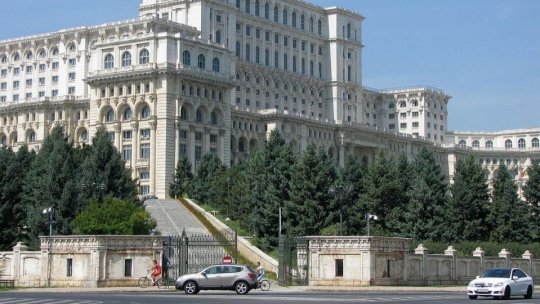National Press Review, 9 August
Articles from the dailies Adevărul, Jurnalul Naţional, România Liberă and Evenimentul Zilei.

Articol de Daniela Coman, corespondent RRA în Franța, 09 August 2011, 16:59
"A new unavoidable recession", the Adevărul headlines, showing that the shock of the U.S. ratings drop shook the financial markets worldwide yesterday.
Spain and Italy were constrained by the European Union to take severe budget austerity measures and to recreate the labour market.
"The best bet is for those countries that have not lost market access – the US, UK, Japan, and Germany – to introduce new short-term fiscal stimulus while committing to medium-term fiscal austerity", said the economic expert and Nobel prize winner Nouriel Roubini.
He recommended the European Central Bank not only to stop rate hiking, but to cut rates to zero. If Italy and Spain lose access to markets, the outcome would be a truly major crisis, requiring a eurozone break-up, Roubini warned.
We find out from the Jurnalul Naţional what is "The essence of the crisis", namely "the politics-money conflict". The second wave of the global economic crisis was produced by the debt crisis. In the United States the government and the opposition shook hands to approve huge spending by increasing the debt limit.
In the European Union, France and Germany have come to pay the reckless costs of Greece. Yesterday the European Central Bank started funding the ease of Italy and Spain. In Romania, the second wave of the crisis will be brought by investors' distrust and by the falling exports and it is likely to be amplified by election promises, the newspaper underlines.
The question of the day in the România Liberă is "How will Romania be affected by the falling stock markets around the world?". The answer is given by the economic analyst Aurelian Dochia, quote: "In the long run, the influence is not to be neglected, whether it's about the more expensive loans or about the recession in countries with which we have economic bonds. But these things will not happen now, but in a few months."
"More money and greater austerity", this is the solution for rescuing markets and solving problems, the Evenimentul Zilei writes.
The political statements cannot stop stock markets from falling anymore. As for the banking sector, so far the profiteer of the current global economic system should bear some of the burden. Some countries have already announced measures to this matter: Germany will introduce in September a tax on the profits of banks and in Greece the banks have been forced to participate in the rescue plan; several businessmen from Italy offered to buy government bonds to help the country to avoid collapse.
To oblige the population again to bear the cost of rescuing states in crisis is no longer seen as a solution either by economists or by political leaders. Romania's only chances are to attract European funds and avoid populism, especially since the elections are coming in, National Bank Governor Mugur Isarescu warned.
Other topics of today's newspapers: The Jurnalul Naţional writes that instead of sending young people with a poor financial standing to social camps on the seaside, the PDL Hunedoara deputy, Viorel Ariton has sent many of his own employees, namely: the parliamentary bureau chief, three other female employees of the deputy, two employees of the Hunedoara County Department of Statistics, the presidents of the Youth Organization PDL Hunedoara and Simeria, a councilor of the County Sports and Youth Department as well as other youngsters with poor results in school that would not have normally met the criteria to get a place in a social camp.
The România Liberă brings into our attention an ambitious project to abolish the students' class skipping: "The Ministry of Education wants that students' access in schools should be exclusively based on an electronic card containing all their identification data, starting in the autumn."
The costs of the introduction of such a system are considerable: the card-based access, only in high schools, would cost around EUR 20 million. Experts argue that the initiative is almost impossible to be applied nationally, especially since it is not known how effective and functional the anti-truancy system will be.
Translated by: Iulia Florescu
MA Student, MTTLC, Bucharest University













